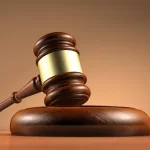Oppositions and Cancellations
Assisting Orange County, CA, Trademark Owners With Oppositions and Cancellations
Navigating the policies and procedures of the United States Patent and Trademark Office (USPTO) is not always easy or straightforward. Additionally, there is no guarantee that your trademark application will proceed unimpeded or that you can continue using your trademark without encountering objections from other parties who have business interests that conflict with your own. At The Kinder Law Group, our team of Orange County trademark attorneys has years of experience helping clients manage complex legal matters related to their intellectual properties.
Trademark oppositions and trademark cancellations are two such matters. An Orange County trademark opposition lawyer and trademark cancellation lawyer is a tremendous asset when another party has filed any type of legal action against your trademark. It is vital to know how oppositions and cancellations can be filed, what to expect from the related proceedings, and the value of legal representation when you are forced to deal with such matters and protect your trademark.
What Is Trademark Opposition?
As the term indicates, “trademark opposition” means that a third party opposes your trademark during or after the application process. It’s common for these issues to appear many months after the applicant has submitted their trademark application. Third parties can propose oppositions to a registered trademark or a trademark in the approval process on many different grounds.
A third party could file a trademark opposition complaint against you on various grounds, including:
- Previously established common law rights. If another party owns a common law trademark that is not registered with the USPTO, they may attempt to oppose your own trademark application filed through the USPTO if they believe it conflicts with their common law trademark.
- Descriptiveness issues. If a third party believes that your trademark contains words that are descriptive of the underlying goods and services, they can file an opposition to your trademark application on the basis that it is merely descriptive and they need to use the words to describe their products and services.
- Challenge against intended use. A third party may file an opposition to a trademark if they have reason to believe the applicant has no real intention to use the trademark or is simply filing the trademark to prevent others from using it.
- Personal Name. If a third party believes they would be damaged by the registration of the trademark in question because it is too close to their personal name or nickname, this may form grounds for an opposition, and a hearing would follow.
- Potential for confusion, blurring, or dilution. Another trademark holder may oppose a trademark application if they believe that the proposed trademark would create confusion with their trademark, interfere with the commercial use of their trademark, or dilute the fame of their trademark.
The USPTO publishes proposed trademarks every two weeks in their Official Gazette, and third parties have 30 days from the date of publication of a proposed trademark to file their opposition. Once an opposition is filed, the USPTO Trademark Trial and Appeal Board has procedural authority over the case.
The Kinder Law Group can be your Orange County trademark opposition attorney and trademark cancellation attorney if you encounter such an issue with your own trademark. We will help you navigate the proceedings you face with the USPTO Trademark Trial and Appeal Board.
TRADEMARK OPPOSITIONS
Trademarks are “deceptively simple.” The trademark application process may look easy…just submit your application by filling in some blanks in an online form. What many don’t realize, however, is that what you put in those blanks may result in your application getting approved right away…or being opposed by a third party. Many won’t even realize there is a problem until six to ten months after filing their application. Third parties can challenge your application on a number of grounds, including earlier common law rights, mere descriptiveness, surname rights, and others. Once your application is challenged, you are essentially involved in a quasi-litigation type of administrative proceeding before the Trademark Trial and Appeal Board. Due to the high cost of attorneys, the opposer hopes to use the cost of litigation as a means of forcing you to abandon your application and trademark.
Fortunately, the attorneys at The Kinder Law Group have a tremendous amount of experience handling trademark opposition proceedings. Having handled so many oppositions, we have numerous form documents to fall back upon and can do in minutes what it would take others hours to accomplish. The Kinder Law Group can literally turn the tables on these opposing parties by efficiently handling the matter and denying them their greatest weapon – the high cost of litigation. Once the high cost of litigation is taken away, they must resolve the matter on the merits. We have done this many times, including in some of the following representative matters.
In addition to assisting clients in Orange County, CA, with trademark opposition cases, our team can also help if another party attempts to cancel a trademark. This is a more serious legal issue that can potentially jeopardize your business, so it’s vital to act swiftly and secure legal counsel from a reliable attorney if you find yourself in this type of situation.
Understanding and Addressing Trademark Cancellations
While a trademark opposition to a pending application may seem daunting, a trademark cancellation can be much worse. Some trademark owners may find it hard to believe, but the reality is that a third party can file a complaint with the USPTO, asking them to cancel your trademark even after it is already registered. While oppositions must be filed within 30 days of the USPTO publishing a proposed trademark in their Official Gazette, a cancellation petition may be filed at any time. However, if the party petitioning for cancellation intends to do so five years or more following the initial trademark registration date, the matter will unfold according to the procedures set forth by Section 14 of the Trademark Act.
Accepted Grounds for Petitioning Trademark Cancellation
If a third party intends to cancel your trademark registration, they must provide solid grounds for doing so. Some of the most commonly cited reasons for trademark cancellation in the U.S. include:
- Likelihood for confusion, meaning the party petitioning for cancellation believes the trademark in question is likely to confuse consumers because it bears too close a resemblance to their own registered trademark. This type of issue may also lead to trademark infringement
- Surname rights, or that the registered trademark is only a surname.
- Abandonment of the registered trademark for three years or more.
- A lack of bona fide use or intent to use the mark, based on the trademark owner’s filing status.
- Fraud.
- Dilution of an existing famous trademark.
It is important to note that this is not an exhaustive list of the grounds a party may cite within the first five years of a trademark’s registration. Once the trademark is older than five years, the petitioner must prove:
- The trademark has become generic.
- The trademark has been abandoned.
- The trademark owner engaged in fraud in registering the trademark.
- The trademark comprises deceptive, scandalous, or immoral matters.
- The trademark is misrepresentative of associated goods and/or services.
- The trademark is not or cannot be controlled by the trademark owner.
If any party files a petition to cancel a registered trademark, the case proceeds to the USPTO Trademark Trial and Appeal Board. Navigating any case through this legal entity requires skill and involves meeting strict filing deadlines. It is crucial to obtain legal counsel from an Orange County trademark opposition attorney and trademark cancellation attorney if your own trademark is at risk of cancellation. The team at Kinder Law Group can help.
TRADEMARK CANCELLATIONS
The process of applying for trademark registration looks easy…fill in some blanks, submit your application, and then you get a certificate indicating your mark is registered. What many don’t realize is that what you put in those blanks will determine whether your certificate is worth the paper upon which it is printed. Worse yet, many won’t learn this until their registration is scrutinized many years later when they seek to enforce or defend their trademark rights.
Third parties can seek to cancel your registration on a number of grounds during the first five years of registration. For example, someone can seek to cancel your registration on the grounds that they began using the mark prior to you (or prior to your filing date where your trademark application was filed on an intent to use basis), because your mark is alleged to be descriptive of your underlying goods or services, or because you committed a significant error during the prosecution of your application.
In addition to defending against cancellation actions, the attorneys at The Kinder Law Group work with clients to initiate cancellation actions. For example, a trademark cancellation can help to remove registrations from the register that might be blocking a trademark owner’s ability to obtain registration of their mark. The Kinder Law Group has been involved in well over one hundred matters before the Trademark Trial and Appeal Board – the following are just a few representative samples of the types of cases handled.
If you have been notified of opposition to your trademark registration or a petition to cancel your registered trademark, it is vital to take prompt legal action to protect your intellectual property. The Kinder Law Group has the extensive trademark law experience you need on your side to navigate such situations successfully. If you are ready to speak with an experienced Orange County trademark opposition and cancellation attorney, contact us today and find out how we can assist you.







